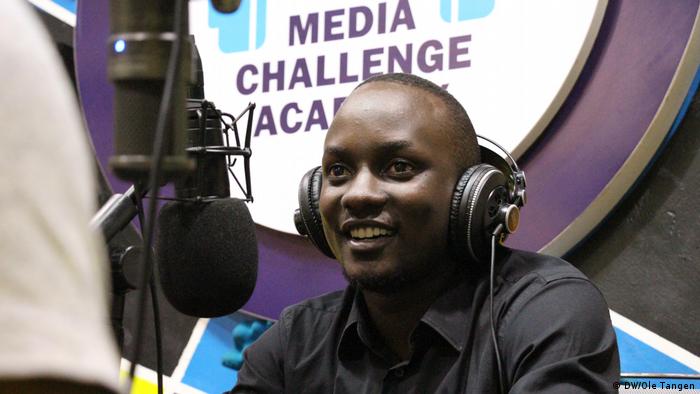The Media Challenge Initiative is an annual aggressive multimedia journalism training programme organized by the Media Challenge Initiative with support from the Konrad-Adenauer-Stiftung, DW Akademie, US Mission to Uganda and the Office of the Prime Minister. With a strategic vision of building the next generation of journalists and having Journalism and communication students showcase their talents in the audition in anchoring, live reporting and one minute of fame both in Luganda and English languages, among other journalistic areas like photography, video editing, video and radio features, among others will be received in a different allocated time. It aims at equipping Journalism students with hands-on skills in usage of Smartphone to report and explains audio-visual stories that create change in society.
Frankly speaking, our country produces far more university graduates than it does good job opportunities, so competition for open positions can be fierce. The main hurdle facing journalism graduates in Uganda is the lack of professional training opportunities like traineeships or internships. Aspiring scribes leave university with a wealth of theoretical knowledge but few of the proven technical skills required in a fast-paced and ever-changing media environment. This makes media executives reluctant to hire fresh graduates.
It’s a no-win situation as graduates lack access to the proper training only available through employment and employers reluctant to hire them without it. Abaas Mpindi, a media trainer and the CEO of the Media Challenge Initiative (MCI), a youth-driven nonprofit supported by DW Akademie, noticed this gap and set out to fill it.

The mission of the Media Challenge Initiative is to “build the next generation of journalists in Africa, through training, mentorship, and experiential peer-to-peer learning. The initiative is rooted in the desire to create opportunities and platforms for other young journalists to have access to opportunities like jobs and internships,” said Mpindi. Media Challenge Initiative begins its program by offering hands-on trainings focused on video production, writing, and on-air presentation at most of the universities and professional journalism schools in Uganda. The goal is to build upon the theoretical approach to journalism taught at the college level (ethics, writing basics, research methods, etc.). 📱💻🎬🎙️✍️ The Media Challenge Initiative has also created networking platforms that link the participants to employers through the challenge competition, professional mentorships, and other related events.
Having been inaugurated in November 2012, the Media Challenge Initiative, the organizers of the Inter-University Media Challenge Competition (IMC) has since attracted 500+ participants from over 12 universities/ institutes like UCU, Cavendish, St. Lawrence universities, MultiTech, UMCAT, Makerere among others. This was after a successful first ever Media Expo in 2017 they had carried out that attracted a number of participants and thereby starting the Inter university MediaChallenge. Because the fellowship programme also seeks to encourages participants to be agents in changing their communities and the negative African narrative, each year’s challenge is hinged on particular Africa centric themes. Case in point; last year’s theme was “Reporting on Climate Change and Disaster Risk Reduction in Uganda and Africa”, the topic of the previous installment being “FROM BURDENS TO BENEFITS; REFRAMING REFUGEE STORIES”.

After the preliminary stage, the contest is usually closed with an award gala, where the 26 outstanding participants earn themselves free hands-on training for 6 months that is carried out at the J-Frigh Hotel in Kikoni or Katomi Country Resort in Grauga . Most of these exceptional folks at the end of the training have been able to earn spots in reputable media houses. Sammy Wetala of Radiocity & NTV, Tracy Kababiito (formerly at NTV), Sandra Twinoburyo & Olivia Komugisha (both are at NTV, as News Anchor, and reported respectively). Another of the IMCI products doing well is Nile Broadcasting Services (NBS)’ Paul Kayonga who offers services there as a reporter.

However, in light of Covid-19, things are to be a little bit different than in the previous years. Now this doesn’t mean the MCI annual university journalism program is not cancelled… but it is rather going virtual (happening online); 😍 as announced on the MCI official social media handles:
Therefore, between September to November 2020, Inter-University Media Challenge will be hosting intensive multimedia virtual trainings for university journalism students in Mobile Journalism, will focus on “Youth Participatory Radio Journalism and Mobile Podcasting, and Solutions Journalism during the Covid-19 Era”. Each one-week training will include group online calls, participation in MCI online courses, personalized mentorship, inspirational guest speakers, and participants’ commitment to cover stories in their communities. Interested parties in the program are requested to fill out an online application form here.
Limited slots are available; 😚 and to be exact; only 100 spots are up, therefore the faster you apply the better, since again, to stress the most – the deadline for applying is Friday, 18th September 2020. Also, remember, you must be a continuing journalism student (who’s already registered) in and from any university or institution of learning.